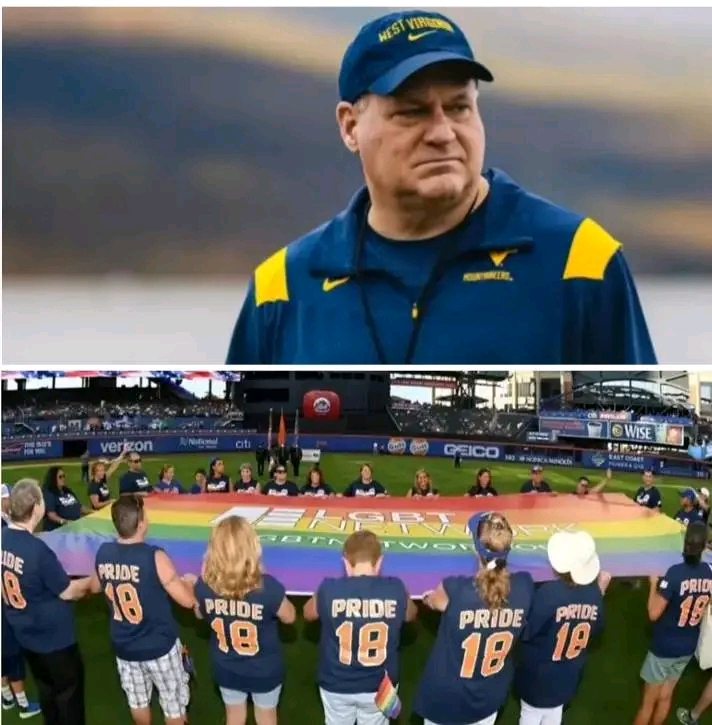BREAKING: West Virginia Head Coach Rich Rodriguez Boycotts NCAA Pride Night, Ignites National Firestorm
In a bold and controversial move, West Virginia University head football coach Rich Rodriguez has announced that he will not be participating in the NCAA’s nationally coordinated Pride Night initiative, scheduled for the upcoming fall season. The declaration came during a post-practice press conference on Wednesday, where Rodriguez, now in his second stint as a Power Five head coach, pulled no punches.
“On the field, it should be about football — not politics or agendas,” Rodriguez stated firmly. “I support my players, no matter who they are, but when the NCAA starts assigning cultural messages to game day, that’s where I draw the line.”
The NCAA’s Pride Night, a relatively new initiative designed to promote inclusivity and support for LGBTQ+ athletes, coaches, and fans, has been embraced by many programs across the country. This year’s campaign was set to include rainbow-themed warm-up gear, stadium banners, and public statements from coaching staffs. While participation is technically voluntary, the expectation for high-profile programs to comply has been strong.
Rodriguez’s refusal, and his reasoning behind it, have sent shockwaves through both the sports and political arenas. Social media erupted within minutes of the press conference, with hashtags like #BoycottRodriguez, #LetFootballBeFootball, and #PrideInSports trending nationally. Several former players and public figures, including retired NFL stars and LGBTQ+ advocates, have weighed in — some supporting Rodriguez’s emphasis on keeping sports apolitical, while others decried the statement as tone-deaf and dismissive of marginalized communities.
West Virginia University has not issued an official statement yet, though sources within the athletic department report that administrators were “blindsided” by Rodriguez’s public stance. Some insiders suggest internal conversations are ongoing about how the university will proceed.
Whether this ignites broader resistance to NCAA-sanctioned cultural initiatives or becomes an isolated incident remains to be seen. What’s certain, however, is that Rich Rodriguez’s decision has reignited a national debate: where does football end — and the message begin?


